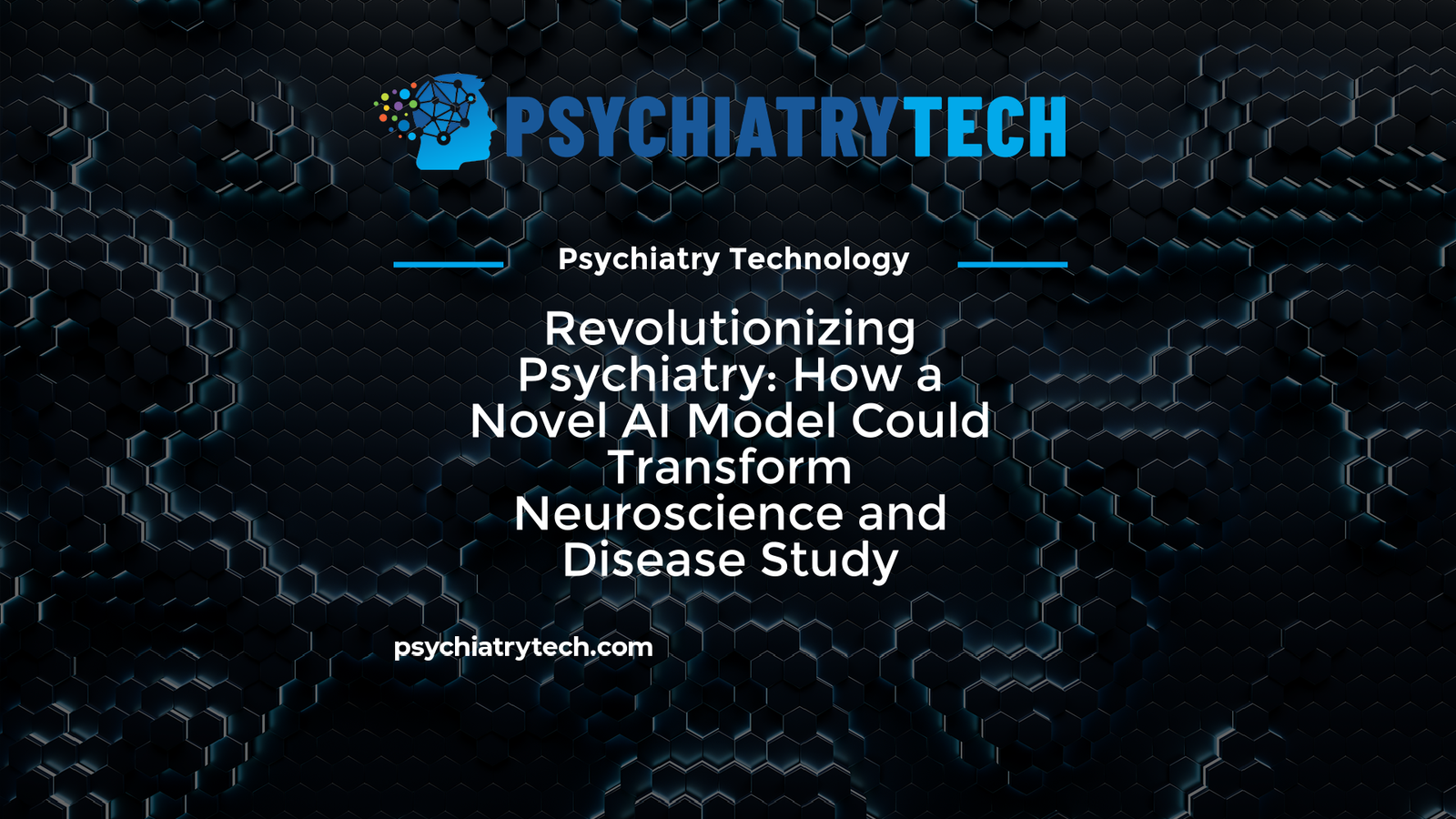Revolutionizing Psychiatry: How a Novel AI Model Could Transform Neuroscience and Disease Study
Advanced technology has infiltrated almost every aspect of healthcare, and the mental health sector is no exception. A recent innovation in the field is an AI model that could dramatically change the way we study and understand psychiatric disorders. This algorithm could open up new pathways for drug discovery and revolutionize our approach to treating mental health conditions.

Discover The World's MOST COMPREHENSIVE Mental Health Assessment Platform
Efficiently assess your patients for 80+ possible conditions with a single dynamic, intuitive mental health assessment. As low as $12 per patient per year.
What is the Novel AI Model?
Leading scientists from the University of California Berkeley have developed a new AI model, the deep neural network (DNN), which can simulate brain activity. The DNN is capable of decoding neural activity in the brain, reading and analyzing the electrical signal patterns, and producing an accurate simulation. This modeling technique is particularly relevant for studying Alzheimer’s and Parkinson’s diseases and neurodegenerative disorders.
One of the key features of the process is that it allows researchers to separate the cognitive and sensory signals in the brain, providing a more in-depth understanding of the activity associated with specific neurodegenerative functions. By coupling this technology with breakthrough MRI techniques, such as functional connectomics, the AI model can examine brain connectivity across regions, providing a holistic view of the brain and allowing for the integration of data from multiple sources.
Why is this Innovation Exciting for Psychiatry?
The creation of this model has huge implications for psychiatric research and the future of treatment. For example, the simulation will provide direct access to the hidden neural activity associated with psychiatric disorders, providing us with a more comprehensive understanding of the underlying causes of the conditions. As a result, researchers may be able to identify new drug targets for specific illnesses, leading to more effective treatments and better outcomes for patients.
Furthermore, the AI model could enable researchers to identify individual brain activity patterns for certain disorders, opening up the possibility of tailoring treatments to each patient. This would be a huge breakthrough for psychiatry, which, unlike many other areas of healthcare, has yet to see a personalized approach to treatment.
Potential Drawbacks
While the creation of this AI model is undoubtedly groundbreaking, it’s essential to consider the potential disadvantages and challenges associated with its implementation. One significant issue is the need for large data sets. The model relies on significant amounts of data to function accurately, which can be challenging for many academic psychiatry labs that may not have access to large data sets.
Another pressing concern is the accuracy of the results. While the simulation may improve our understanding of brain activity in psychiatric disorders, it may still not be entirely accurate. This is true for all models and simulations, and psychiatry is no exception.
The Future of Psychiatry?
The potential of this innovation is enormous, and while there are challenges to overcome, the future of psychiatry could be incredibly exciting. The AI model has the potential to revolutionize the way we diagnose and treat mental health conditions, leading to more effective treatments and better outcomes for patients. It could also lead to the development of new drugs with fewer side effects, helping patients avoid the distressing side effects often associated with current psychiatric medications.
Overall, this innovation is a significant development for the mental health sector, offering hope and new opportunities for researchers and practitioners alike. The creation of the AI model is likely to encourage further investment and research into technology for psychiatric disorders, pushing the mental health industry into a new era of potentially lifesaving discoveries.
Conclusion
The development of the deep neural network AI model is a crucial step forward for the future of psychiatric conditions, and it has the potential to optimize diagnosis and treatment in a way we have never seen before. Realizing that potential will require large-scale investments, interdisciplinary collaborations, and a lot of hard work from researchers and practitioners alike.
What are your thoughts on this new AI model? Do you agree that it could transform the psychiatric health industry? Share your take in the comments and don’t forget to share this post with your community!

